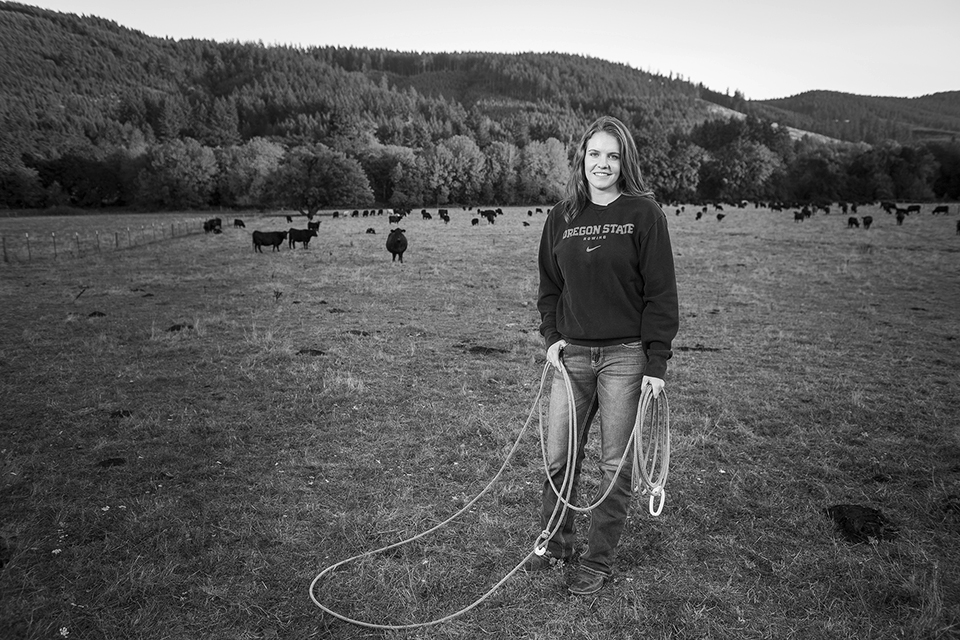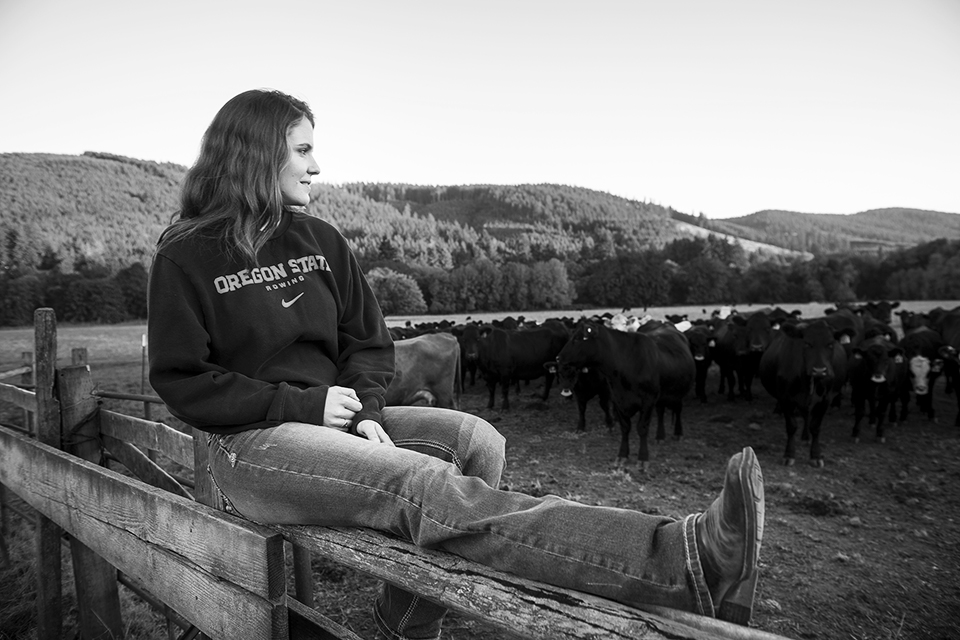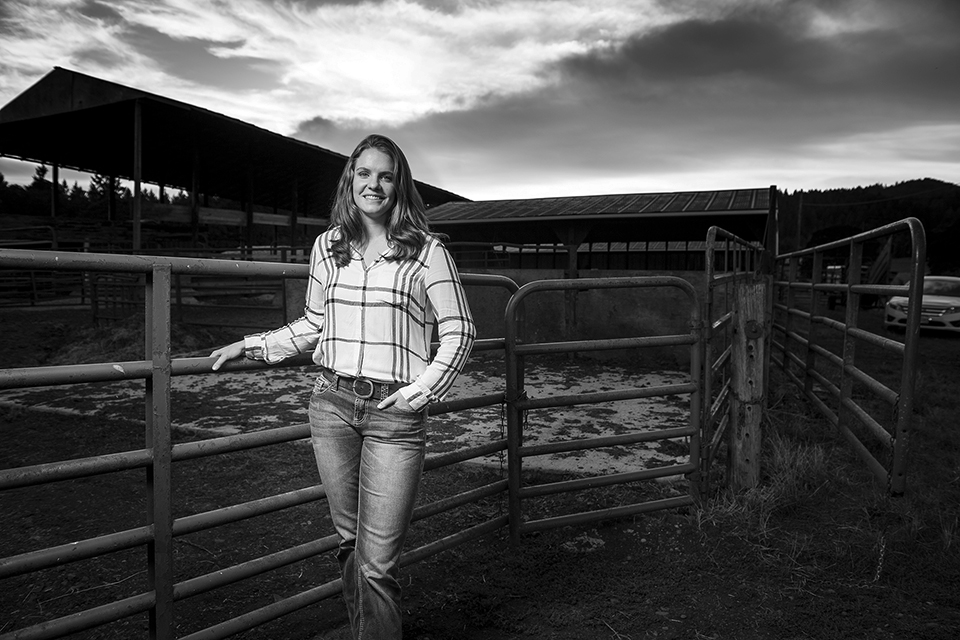When Tess O’Leary came home to her family’s ranch in southeastern Oregon after her freshman year at Oregon State, she thought she knew what hard work was.
Before she arrived on campus, she had set aside the possibility of becoming a college athlete to focus on studying agriculture business. Then she got the email that’s sent to incoming freshmen inviting former athletes who are taller than 5’8” to try out for Beaver Rowing.
"What the heck? I might as well try it,” she said.
The first day of tryouts, there were about 60 other young women, and the voice of self-doubt started to creep in.
When you come from a small town, it’s easy to see yourself in the role of underdog.
"Why would they choose me?” she wondered.
A four-year varsity athlete in volleyball, basketball and track in high school, O’Leary was already accomplished. Now she would try to walk-on to a Division I rowing team, despite never having rowed before.
When they got on the rowing machines, one of the team helpers critiqued her technique.
“You’re using it like a rocking chair,” he said.
In another aptitude test, she had to tread water for 10 minutes. Some of the others were swimmers and easily talked during the drill. About six minutes in, O’Leary started to struggle.
“I don’t know if I’m gonna make it,” she thought.
But she kept going and not only made the team, but also worked her way to the second varsity boat her freshman year.
“I think I got better because I had to,” she recalled. “I didn’t want to be the freshman who screws things up.”

When she returned home to the ranch, she thought she was pretty tough.
Then she went out with her dad to put up the forest fence. All day, she followed him as he packed a chainsaw and cut down trees. It was all she could do to keep up.
“He’s motoring up the hills. And I was dog-tired,” she said. “It puts you back in your place.”
It turns out the same principles you learn growing up on a ranch apply to being a student-athlete.
“The hard work that it took to be successful at home was exactly the thing that it would take to be successful at Division I sports,” O’Leary said.
The All-Conference rower and three-time Collegiate Rowing Coaching Association Scholar-Athlete is one of many Oregon State student-athletes with a common thread.
You don’t have to teach these kids from rural Oregon what it means to give your all. They’ve been haying, working cows and feeding calves since they were kids. They already know it.
O’Leary comes from the town of Paisley, pop. 250, in Lake County, where cows vastly outnumber people, and there isn’t a stoplight to be found. Her graduating class, large compared to other years, had 11 students.
There’s not much for kids to do besides work on the farm and play sports. The school’s track is dirt, and the shared runway for the triple-jump and pole vault is shin splint-inducing asphalt. On the basketball court, out-of-bounds is the wall.
"I had a different experience than most kids who’ve gone on to play Division I sports,” O’Leary said.
That didn’t keep her from excelling. She earned all-state honors and made 14 appearances at state championships, winning four state titles.
Some smaller colleges tried to recruit her, but her mind was already made up. In seventh grade, O’Leary came to Oregon State to attend 4-H camp.
“That’s where I’m going,” she announced when she returned home.
Both her mom and older sister attended, and it was the only college she applied to. Generations of her family have been cattle ranchers. O’Leary’s mom is a teacher and her dad’s a rancher. Her mom’s mom was a teacher and her mom’s dad is a rancher. Her dad’s mom’s is a teacher and her dad’s dad was a rancher.
O’Leary wanted to study ag. But she was most interested in the business side.
“There are plenty of people to pass on to the next generation,” she said. “I want to be in a supporting role.”





